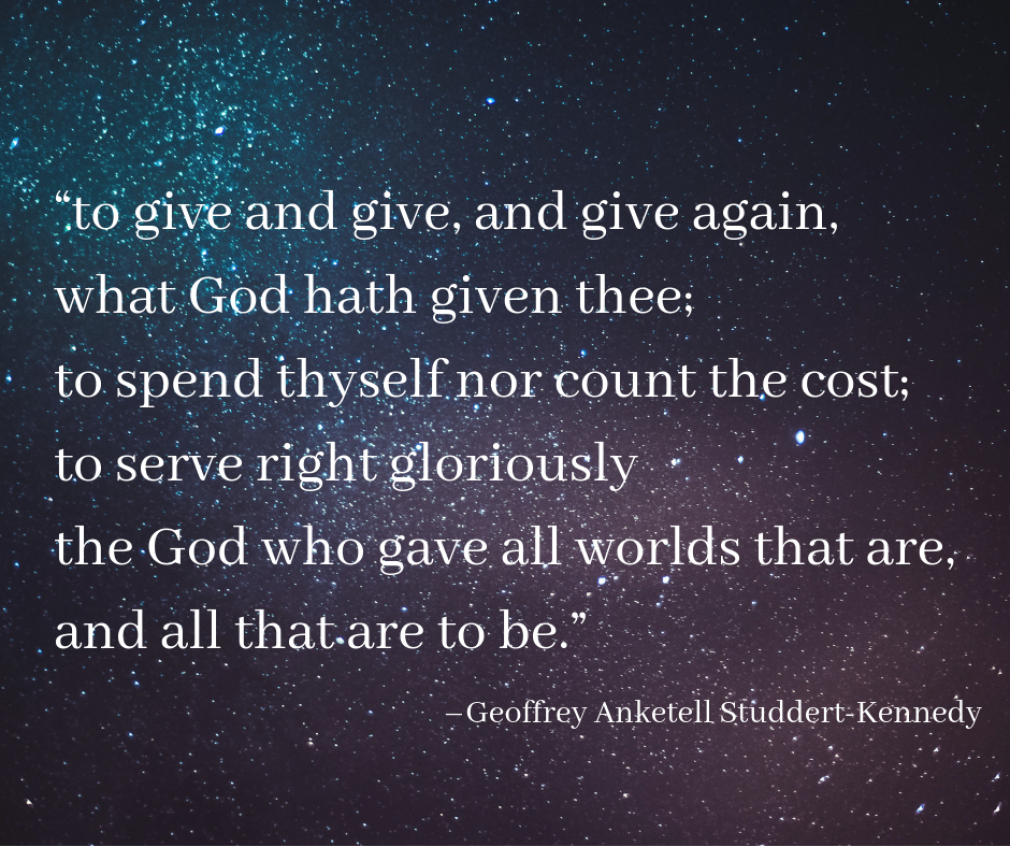The Twenty-Second Sunday after Pentecost: musical connections

One of the marvelous things about church music, for me, is learning about little connections between words, music, and composers over time.
Take this Sunday, for instance. The very first thing we will sing is an Introit to an Anglican Chant by Lionel Dakers. Dakers served Special
Commissioner for Royal School of Chuch Music (RSCM) from 1958 to 1972, and Director from 1972 to 1990. St. Peter's is a member of the RSCM, and you can make a connection with them right now by visiting their brand new website: https://www.rscmamerica.org/.
I relish the chance to make musical connections in the service every Sunday. For instance, the Introit and the hymn that follows are both in F minor.
I've sung the hymn "Not here for high and holy things" many times throughout the years. Every time I sing it, I am surprised by how beautiful and timely I find the words. The author of the hymn is Geoffrey Anketell Studdert-Kennedy.
The second stanza begins: "the royal robes of autumn moors," but it goes on to catalog imagery for every season of the year.
And I cannot help but smile when we get to sing
"the silver glistering
of all the
the silent song they sing,"
How I enjoy that word "glistering"! This is its sole appearance in the Hymnal.
It's worth taking a look at the hymn as a whole. I was reminded in a conversation with colleagues this week that one of the disadvantages to American hymnals is that it is more challenging to appreciate hymns as a poetic form. In the UK, hymns are mostly printed with the music and the words on separate, facing pages.
Note how the first three stanzas of "Not here for high and holy things" are a catalog of "the common things of earth" – a list so long that it occupies three full stanzas of the hymn!
Not here for high and holy things
we render thanks to thee,
but for the common things of earth,
the purple pageantry
of dawning and of dying days,
the splendor of the sea,
the royal robes of autumn moors,
the golden gates of spring,
the velvet of soft summer nights,
the silver glistering
of all the
the silent song they sing,
of faith and hope and love undimmed,
undying still through death,
the resurrection of the world,
what time there comes the breath
of dawn that rustles through the trees,
and that clear voice that saith:
This list of "common things" is so long that it occupies three full stanzas of the hymn, culminating in that tantalizing "that clear voice that saith:". That's why you see these three stanzas starred with an asterisk in the Hymnal. You could omit them, begin with the fourth stanza ("Awake, awake to love and work") and still have a perfectly beautiful hymn of praise. But we will enjoy the full poetry and set up for the final three stanzas.
The final stanza provides us a connection with Stewardship Season at St. Peter's.
"to give and give, and give again,
what God hath given thee;
to spend thyself nor count the cost;
to serve right gloriously
the God who gave all worlds that are,
and all that
In some places, the congregation might eye this hymn choice rather suspiciously! But I have no doubt that in a parish as generous as St. Peter's, these words read more as a description than an imperative. Stewardship of our time, talent, and treasure is a fundamental part of Christian discipleship. How could we not sing these words? And we should do so "right gloriously"!
The hymn that we will sing prior to the Gospel has all kinds of associations for me personally. I won't bore you with them here.
At Communion, we will sing an anthem that was written for the new headquarters of the RSCM in 1954 by William H. Harris: "Behold, the tabernacle of God". It's a splendid little anthem, and I wanted us to sing it during this year when we are celebrating our sesquicentennial. The words are from an Antiphon for the dedication of a church. I especially enjoy the phrase "season of festivity," which we have used as a title for our Choral Evensong and Concert series. And remember Lionel Dakers, the composer of the Introit? He moved into the new RSCM headquarters a mere four years after this anthem was premiered.
Since the Choir is singing Handel at the Offertory, I wanted to conclude the service with another bit of Handel. This piece is the March on a Theme of Handel by Alexandre Guilmant. This work was written in 1861, the same decade St. Peter's was founded. Guilmant was the celebrity organist at the 1904 World's Fair in St. Louis, and organ teacher to my predecessor Charles Galloway

